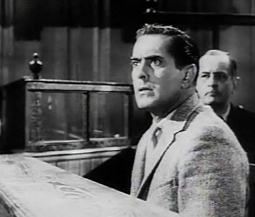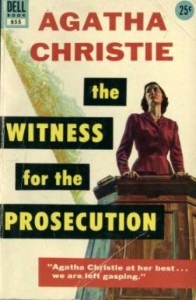The Agatha Christie School of Cooperating Witnesses
Reading Time: 2 minutes.

From Lawrence S. Goldman and our friends at White Collar Crime Prof blog, a summary of a Second Circuit decision addressing (1) the extent to which prosecutors can “bolster” cooperating witnesses’ testimony by relying on their cooperation agreements and (2) whether or not the tardy production of Brady and Jencks material matters. (Answer: it doesn’t). In particular:
The opinion also excuses, but does not condone, the improper failure of the government to turn over handwritten notes by a testifying agent which were discovered in the later examination of another agent and belatedly revealed to the defense. The notes should have been revealed earlier, says the Court, not only since they included evidence favorable to the defense, but also pursuant to Fed. R. Crim. Pro. 16(a)(1)(B)(ii), a discovery rule, and 18 U.S.C. 3500, the Jencks Act. However, since the notes were, however belatedly, turned over and the defense had an opportunity to review them, examine the later-testifying agent about their content, and recall the earlier witness if it chose, and since their timely disclosure would not have changed the verdict, in any case there was no Brady violation. The opinion thus demonstrates that late provision of Brady (or Rule 16 or Jencks) by the government during trial will virtually never be grounds for reversal, at least not in the Second Circuit.

We have written before about cooperation agreements before here and here, and Brady non-disclosure abuse here. And here is the trailer for Billy Wilder’s 1957 film Witness For The Prosecution (starring Tyrone Power, Jr. and Charles Laughton).